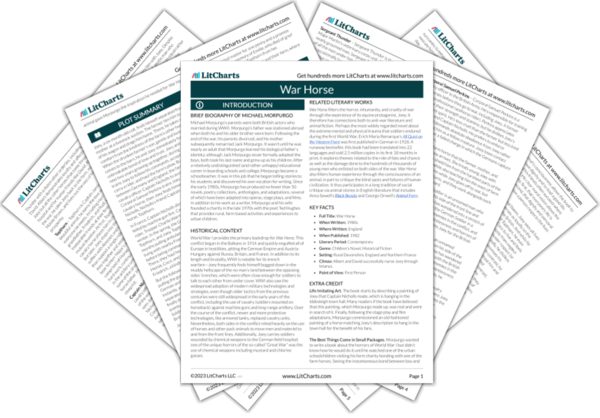Joey proves himself to be an infallible judge of character, and so readers can rest assured that those whom he loves and respects (first Albert, then Nicholls, and now Topthorn) deserve his affection. Unlike the humans around him, Joey never fails to appreciate a fellow creature’s inherent dignity and worth. And from the moment they meet, Joey and Topthorn remain inseparably loyal to each other.
